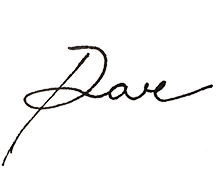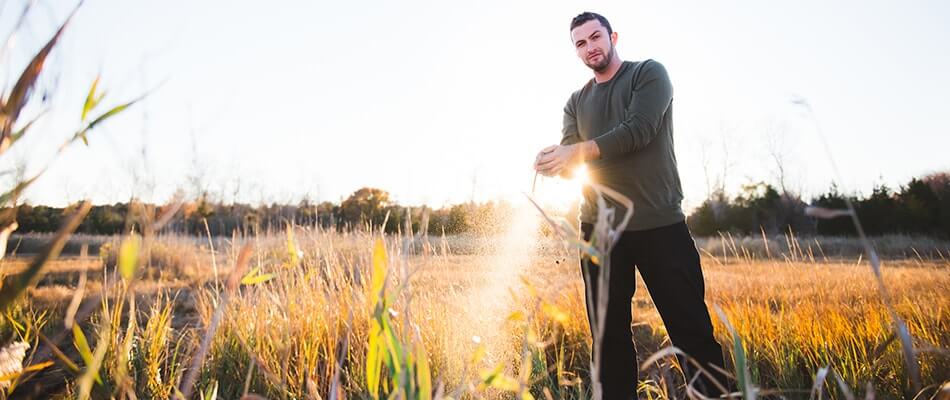Years ago, my dad and I drove in a white rental van to somewhere in Connecticut to move furniture out of my sister’s college house. She had already graduated and moved out, but a few larger pieces remained — a bed frame, bureau, desk, and the like.
My dad asked me to help him. Naturally, I agreed. It was the least I could do to thank him for the free room and board: I was 24 and living in my childhood home again as I struggled in the first year of my “new life” as a writer.
“Did you remember the key?” I asked dad as we departed.
“Yes, it’s right here,” he replied, flashing the brass key at me from the driver’s seat.
Two hours later, we stretched out our legs before a modest yellow ranch house. It was warm for May — the kind of day that’s only 65 degrees but feels closer to 90 after a long and cold New England winter.
As we approached the front door, dad slid the brass key into the door lock.
But there was a problem.
The key wouldn’t fit.
“That’s strange,” he said, perplexed.
He tried again. Nothing.
He flipped the key upside down. No luck.
“Oh no… did I? I thought I…”
Dad had brought the wrong key.
“I couldn’t have… I can’t believe…”
As the error began to dawn on him, I watched him slide into a brooding stew of self-directed rage under his breath.
“Oh my God, you’ve got to be kidding me… What did I do?!”
My father then began to curse in strings of magnificent verse that I’ve come to know well throughout my life; a pitter-patter blend of English and Italian expletives, intermingling like a swirl of exotic leaves in an elegant brew of loose leaf tea. Some listen to jazz or orchestral music with an ineffable appreciation for what they’re hearing. For me, it’s hearing my dad’s cursive verbiage, reminiscent of Shakespearean iambic pentameter: his most natural form of self-soothing when he is particular flummoxed or dismayed with himself.
Besides the obvious inconvenience — a frustrating mistake that would result in us needing to drive two hours back to the house to get the right key, and back again — there were no real stakes attached to dad’s error.
A four-hour effort would now become an eight-hour ordeal.
Still, mistakes happen. We’ll all make them from time to time.
And yet, amid the expletives, I could also hear my dad express an underlying train of self-pity and regret:
You screwed up.
You should have known better.
Who makes a mistake like this?
Why didn’t you double-check if this was the right key?
Why didn’t you know?
How couldn’t you know?
You should know better by now.
You should have learned by now.
When I was 24 years old, I couldn’t wrap my head around why my father would get as upset with himself as he did.
It happens, I thought.
Don’t bury yourself under your mistake, I remember thinking.
This doesn’t have to send your day, your week, or your self-esteem into a spiraling pit of blackness, I wished I had dared to say.
But now, ten years later, at the age of 34, I am beginning to understand his frustration all too well.
At a certain point in our lives, we cross the threshold from youthful adulthood into adult adulthood. We stop pretending as if we will be young forever. We become more cognizant of the obvious fact that we’re really, actually aging. It starts with noticing the physical changes, usually. We see wrinkles deepening and the flecks of grey hairs; we feel our slowing metabolism.
And yet, the physical changes to our bodies pale in comparison to what changes in our expectations of ourselves.
As we cross the threshold into our “older-ness,” there comes with it an assumption that we should leave behind the behaviors and actions that we associate with youth — even very human acts like making mistakes, experiencing setbacks, or not having “it all figured out.”
Because we’ve left that phase of life when mistakes and mishaps and setbacks are allowed — or even applauded — we begin to expect our “more mature selves” to know better, do better, be better. For real, now. For good, this time.
We get down on ourselves, and hard, for the things that we “should have” figured out already.
We lose the ability to excuse or appreciate our mistakes.
We associate growth with “knowing better.”
And when you “know better,” you know better than to risk a mistake, or being wrong, or screwing up.
No wonder why we also lose our willingness to try.
“What about that key box?” I pointed out a realtor lockbox just off the side of the front porch.
“Let’s try to open it,” I suggested.
“There’s no way we could get into that, how could we do that?” dad said, still dismayed.
“Why not try?” I said, “What’s the worst that could happen?”
Because of my nerdy history with computers and computer security since about the age of 10, I knew that it was most likely that a four-digit lock combination would be a date, like a memorable year. So I began with what year it was — 2010 — and began to flip backward to 2009, 2008, 2007, suspecting that I would eventually hit on some year of significance: the year the house was purchased, or of a wedding anniversary, or of a kid’s birth…
Thirty-one flips later, the lock clicked open.
It showed 1979.
“Dad?” I turned to him — half in disbelief, half with enormous satisfaction.
“…I don’t f-cking believe it.”
The odds are 10,000 to 1 against you that you can correctly guess a four-digit combination.
But at the age of 24, I was a little like Han Solo: I didn’t want to hear the odds.
I had just quit my job amid the Great Recession. I was trying to build a platform for myself as a writer. My dream was to become a best-selling author. I was pulling myself out of a battle with depression and I had already ditched the anti-depressants and anxiety medications that I was prescribed as if to prove I could do it on my own*.
(*Like I always make sure to say nowadays, I don’t recommend, encourage, or endorse doing this.)
When I was 24, I didn’t understand the feeling of “I should have known better,” so my whole life was a string of risk-taking and mistake-owning.
Of course I tried to break the lock open.
But… would I try it today?
Over the last few years, I can relate more and more to the “Should have known better” sentiment that spun my dad up into his micro-meltdown in front of the key box.
At the age of 34, I wish I could have figured everything out so much better by now. I can feel the pronounced difference in each sting of a screw-up, a setback, a mistake, or an admission of not knowing. When I was 24, the sting wouldn’t even register.
Today, I feel far too familiar with that jarring realization he had — How couldn’t you know? You should know better by now. You should have learned by now. I have felt relationships end that threatened to torpedo my self-esteem. I’ve seen working relationships just not work out and felt that affect my sense of self-acceptance. I’ve felt alone and forgotten that what’s most important is self-love.
I don’t want mistakes, misgivings, or missteps to bring me into that downward spiral.
Because I still want to be making mistakes.
I still want to risk, to effort, to not know, and to try anyway.
I want to be and feel free enough, curious enough, and even a little defiant enough, to go for it.
Not in the “quit my job and defy a recession and overcome depression on my own” kind of way.
(I’m getting too old for that.)
What I want is to be able to look at mistakes, setbacks, and failures like little obstacles. Like opportunities, not indictments. Like they can become my teacher, not my nemesis.
Like a lockbox with 10,000 to 1 odds… that you should “know better” than to try to break.

